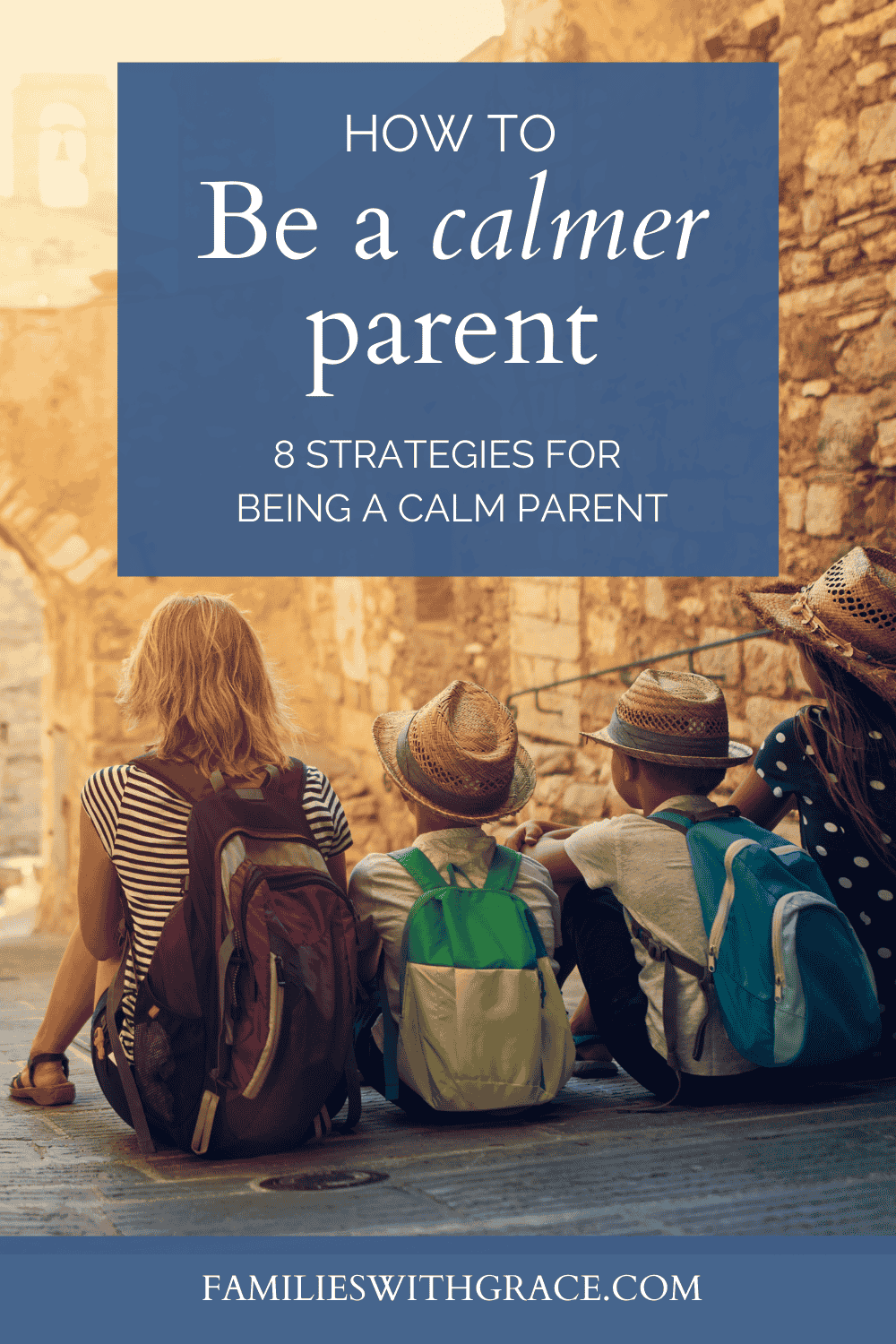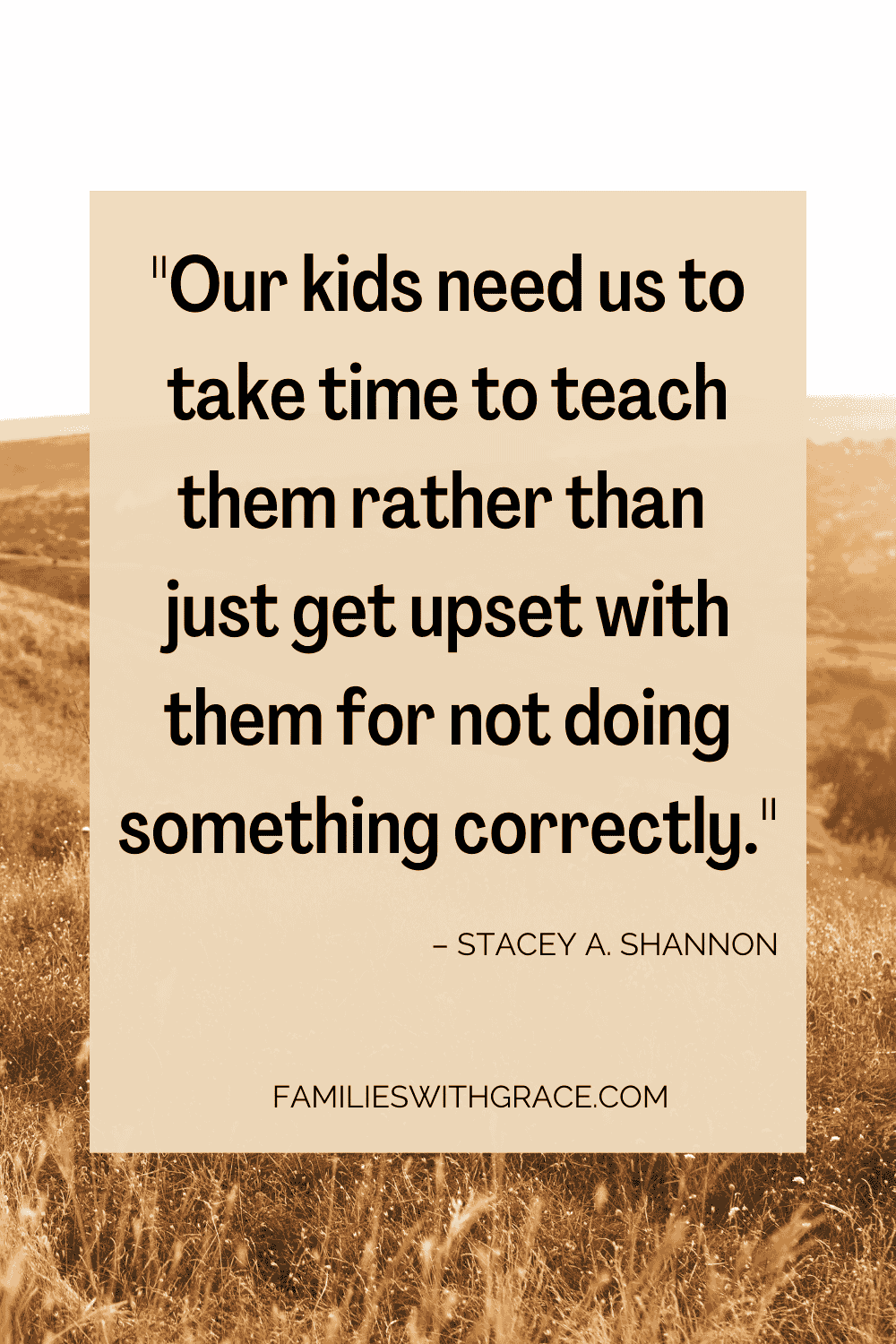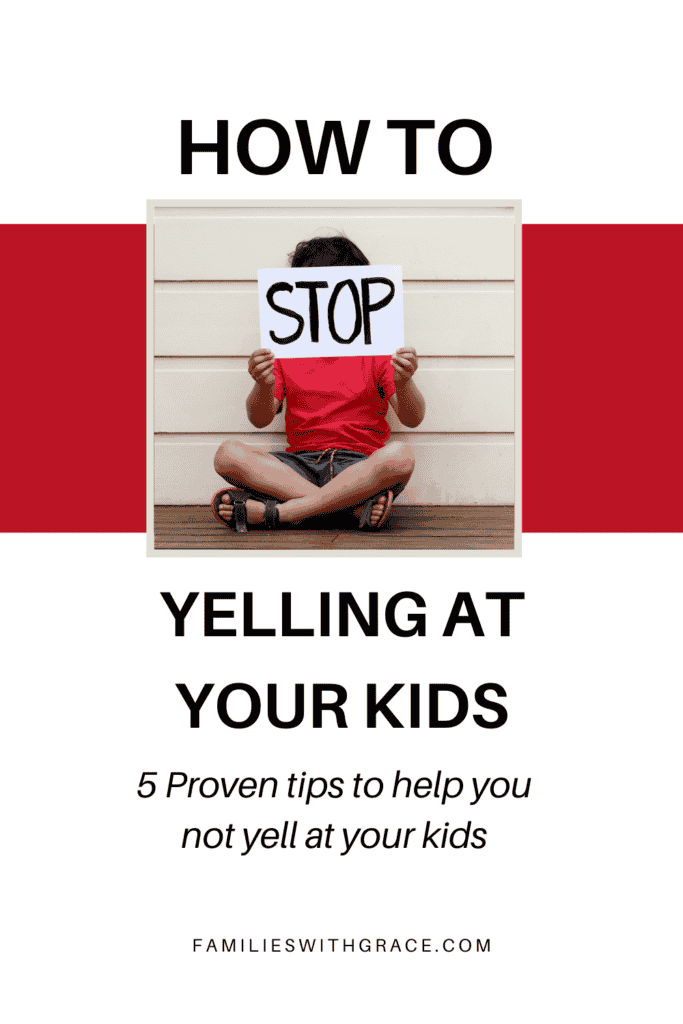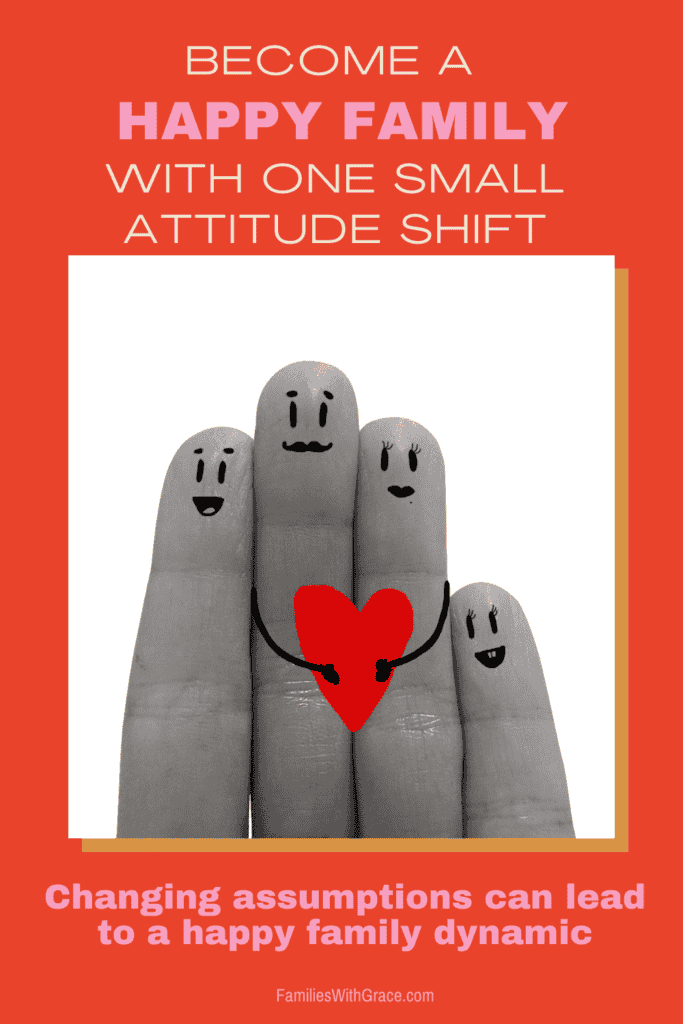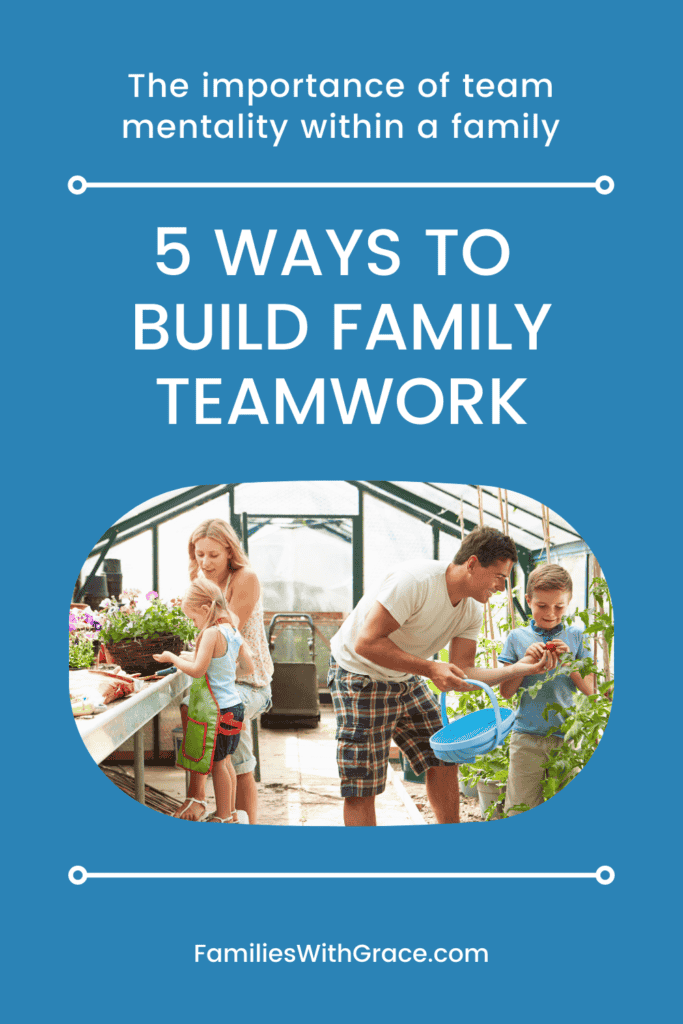8 tried-and-true strategies for being a calm parent
Nobody goes into parenthood thinking how irritated and grumpy they’ll be. We have visions of being a calm parent. But then the baby is born. You add up no sleep, a huge adjustment to taking complete care of another person and the pressure you feel on all sides and all calmness goes flying right out the window. And that’s just the early days! Parenthood is a hard gig. If anyone tells you it isn’t, they either aren’t a parent or they’re flat-out lying!
Being a calm parent is challenging, even for naturally calm folks. I think I’m a pretty naturally calm person. I don’t get angry easily. My husband is the same way. But parenthood definitely puts that to the test. We’ve failed and messed up. However, in the past 12-1/2 years of parenting, I’ve learned a few strategies that help me be a calmer parent.
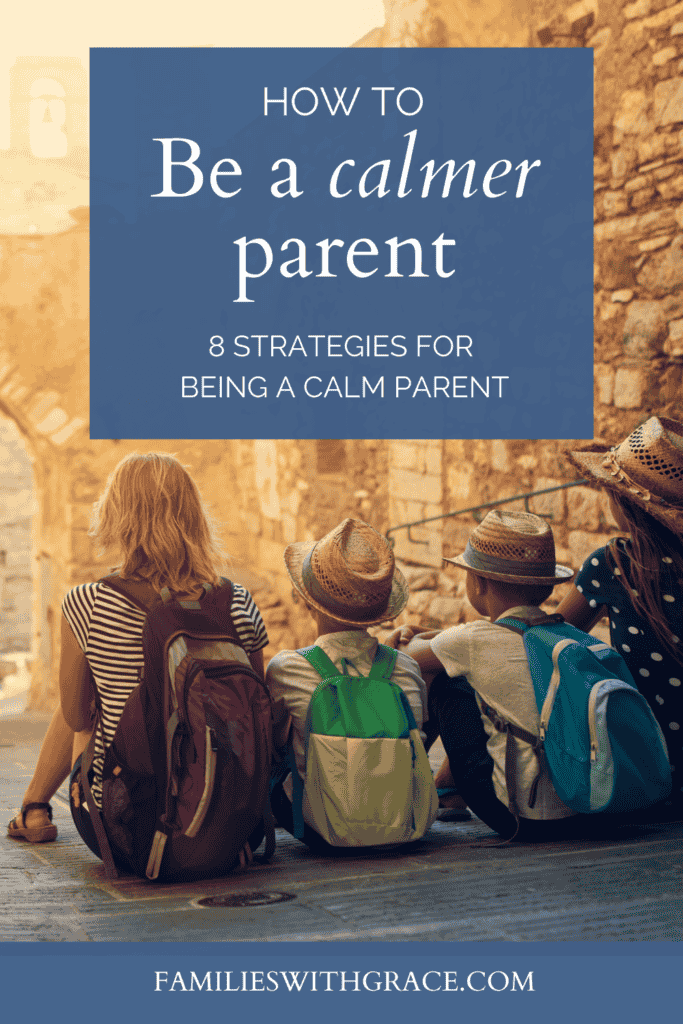
1. Pray about it.
Everything starts with prayer, right? Well, at least it should. Sometimes we get off track and try to do things on our own first. It never works out so well. Even being a calm parent is something we can ask God to help us with. He blessed us with these children. He knows their hearts and our hearts. Our Father knows our challenges and struggles. He is just waiting to help us!
You can literally pray before you start the day for God to help you be a calm parent that day. I pray that God helps me to be the mom my children need each day. Calmness is included in there!
Praying in the moment is also important. I can’t say that I do this every time my irritation starts forming, but I try to pray in the moment as often as possible. Sometimes it’s just a short, “God help me to deal with this,” prayer. A bonus to that is in the time it takes me to pause for a few seconds to pray, it also breaks the momentum of my irritation.
2. Listen to the right music.
Music is powerful. I’ve shared a few times the difference that music makes in my life. The right music helps me to be a calm parent. That might sound a bit lame, but it’s true! My go-to music is contemporary Christian music. (If that’s your jam, too, check out the free Families with Grace playlist on Spotify.) Or maybe you enjoy hymns. Maybe country gospel music speaks to your heart. (I truly love all three types of music I’ve mentioned!) Whatever it is, listen to something that calms you and helps you focus on God.
In the car after school, I usually have Air1 Radio or The Message on Sirius XM playing. My kids can sing along to almost every song that comes on. When they were younger, I’d leave the kitchen radio turned on almost all the time to Christian radio. It’s really difficult to yell at or lose patience with your children when you are singing or humming along to Christian music.
Even now, I listen to it while I work most of the time. (For articles that require more concentration, I usually switch to classical.) Then even when I’m not listening to music, the songs are still running through my head. It helps me be a calmer parent.
3. Remind yourself how old your kids are.
Have your ever gotten mad at your child for acting their age? I sure have! We definitely have to teach our children how to grow and behave, but we also need to understand what they are truly capable of. For example, I’d love to tell my 9-year-old to go organize his room. But he still needs some guidance. He knows toys can’t be all over the floor and that dirty clothes go to the laundry room. However, he is 9. He also needs specific instructions for where to put some toys or reminders of the organization we helped him create for them.
My 12-year-old is mature for her age and always has been. Sometimes I have moments that I start to get irritated with her for doing something irresponsible and then I remember, she’s 12. It calms me down. I know that she is still learning. Expecting our children to act more responsible than they are able to be is only asking for trouble. We can remain a calm parent when we stop before we snap at them and remember their age.
Remembering their age helps me switch from anger and irritation to teaching mode. That’s what my kids need most anyway. Our kids need us to take time to teach them rather than just get upset with them for not doing something correctly.
4. Set reasonable expectations for your children.
I get frustrated by people who don’t do their jobs well. We’ve all had times when we had to do a task we shouldn’t have had to do because someone slacked off. When someone doesn’t do the job we expect them to do, it is incredibly frustrating.
The same is true with our kids. When we set expectations for what we’ve asked them to do, we get frustrated when they don’t follow through. Sometimes it is completely their fault, and they didn’t do what they are fully capable of doing. Those times, they need to have consequences. Other times, though, we expect them to do a better job than they are able to do. Before we start getting upset we need to be sure we have reasonable expectations for what our children can and should be able to do.
Over the weekend, my kids were working together to clean up after dinner like I had asked them to. My youngest didn’t complete his task completely. My daughter started to just sigh and do it for him. I stopped her and we showed him how to complete the task. It was a win-win, because now he knows how to do the task and we can expect he can do it in the future. And nobody got upset in the process.
5. Take a breather.
It’d be nice to say that if you use these strategies you will always be a calm parent. But that’s not true, because you’re human and so are your children. Some days are hard when you’re exhausted and your children seem to find every button you have and push it over and over and over and over. Sometimes, the best thing you can do is take a breather.
If your children are babies or toddlers, this may mean just putting them in their crib for 5 minutes while you go to another room and just pause. (Been there, done that!) If you have preschoolers, this may mean you sit them down with a 20-minute show and you don’t interact. For older kids, you can send them to their rooms or tell them you need time alone for a few minutes.
I’ve sometimes taken an extra couple of minutes switching out or hanging up laundry just for a breather. Taking a couple of minutes away from the moment can help you calm down. Add in some deep breathing and prayer time and it works even better.
6. Ask for help.
You weren’t made to parent alone. Asking for help is OK. I was fortunate when my children were small that both my parents and in-laws lived within a few minutes of us and loved having time with grandkids. I utilized that help. If you don’t have that, maybe you have a friend you could trade off babysitting with.
Don’t forget to ask your spouse for help as well. Nope. It shouldn’t be the case that one of you is “helping” the other when you’re both in this together. But at the same time, your spouse doesn’t know what you need without you asking. Sometimes my husband has noticed my need for time away before I have. He’ll encourage me to go to our room or leave the house or whatever I need to do to regroup. Other times, I ask him to take over so I can have a minute. The same has been true in reverse.
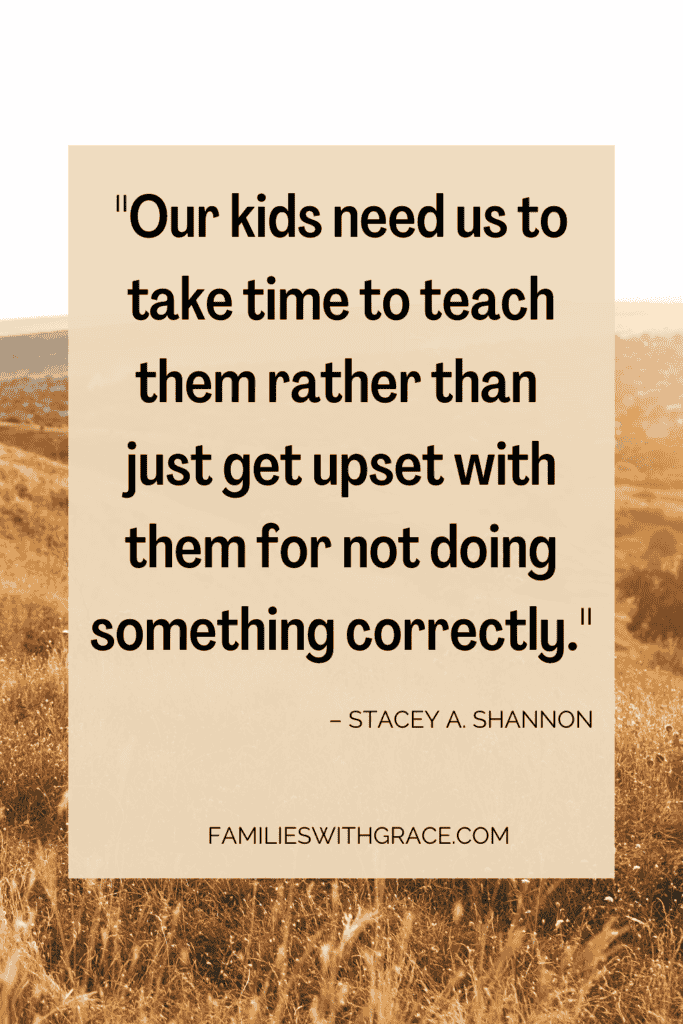
Sometimes to be a calm parent, you have to ask for help and get away from it all — even just for 20 minutes in the shower alone. Other times to be a calm parent, you need someone to take items off your to-do list and fold the two loads of laundry sitting by the dryer. Just ask!
7. Try to embrace an attitude of gratitude.
Nothing impedes our calmness like getting angry with our family. Sometimes we get angry because of all we have to do for them that they don’t seem to appreciate. I’ve struggled with this before and still do from time to time. Have you ever had a thought starting with “Why does nobody else around here ever….?” Then you know what I’m talking about.
Yes, our families need to pull their weight. We shouldn’t let chores go undone or do them all ourselves. However, shifting our perspective helps alleviate anger and, in turn, makes us a calmer parent. For example, as you’re conquering that ever-growing pile or laundry, take a moment to thank God for the family you have who wear those clothes. Start adding in other things, too, like thanking Him for the clothes themselves and the ability to wash them in a washing machine.
It may be cliché, but once we start counting our blessings, we calm down. Our attitude shifts and we are more at peace.
8. Apologize when you lose your cool.
Chances are really good that you aren’t going to be a calm parent all the time. I’m certainly not. Sometimes our children need us to not be calm to get a point across. Other times, they don’t deserve our wrath. And it’s those times that we need to go back to our children and apologize. It’s a learning moment for our kids and helps us remember the lesson we learned as well.
Our children learn nobody is perfect, how to apologize when we mess up and that love covers it all. We have a memorable moment in feeling bad about acting out of anger so we are more likely to stop ourselves before doing so again. Simply saying “I’m sorry for how I reacted” goes a long way.
Find more resources to help you be a calm parent in these posts as well:
